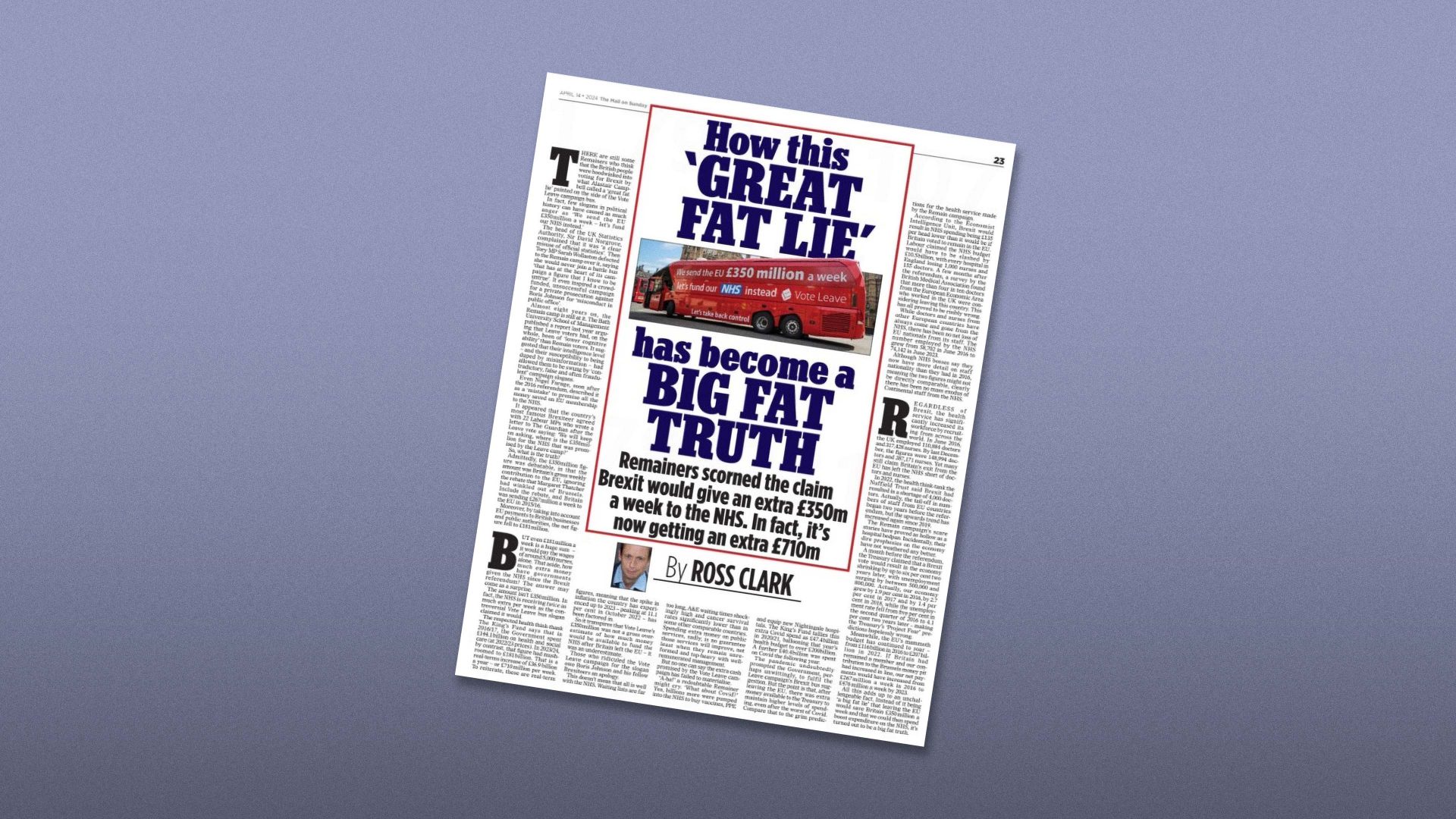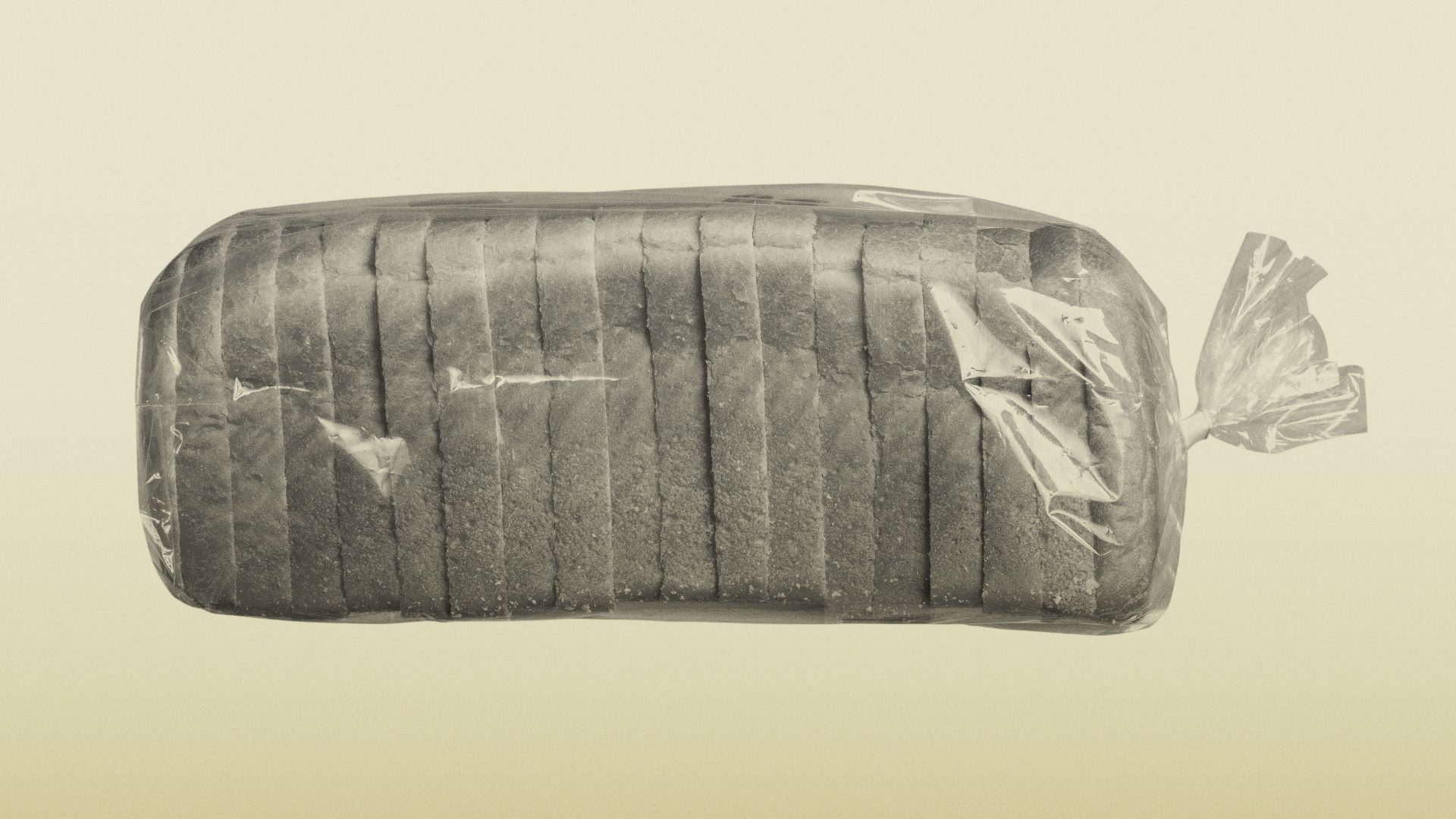As I am sure you all know, “Post hoc, ergo propter hoc” is one of those Latin phrases that, as a journalist, it is really handy to know. It is a foolproof way of identifying a common fallacy or mistake.
It literally means “after this, therefore because of this”. It is a way of saying that it is a mistake to assume that just because one event follows another, it must have been the first one that caused the second.
The classic example is the story of the arrogant cockerel who crows every morning just as the sun is rising and boasts that it is his crowing that causes the sun to rise. One day the farmer cuts off the cockerel’s head and puts him in the pot. Strangely enough, the next day the sun still rises.
Talking of cocks brings me to the Mail on Sunday, which is getting increasingly desperate in its attempts to try to prove that Brexit was a good thing. And specifically to an article written by Ross Clark.
Titled “How this ‘GREAT FAT LIE’ has become a BIG FAT TRUTH”, its logic goes like this: after Brexit, spending on the NHS has risen by more than £350m a week. So, the claim during the referendum on the side of that infamous bus, that Brexit would mean another £350m a week for the NHS, was not a lie after all.
In fact, the article claims that the NHS is getting another £710m a week compared with 2016, so Brexit has been a triumph – for the NHS at least.
It is rather difficult to know where to start with all this, but let’s begin by noting that Clark starts with an admission that the £350m figure was a lie in the first place – as he acknowledges, it did not include Thatcherite rebates that the UK received from the EU, nor investment by the EU in the UK. He still goes on to use the £350m figure anyway, however.
Clark’s big gotcha is to produce evidence that spending on the NHS has increased in real terms since 2016 – although we all knew this already, as health spending always does grow, and it stands to reason that the NHS budget will have grown by even more than normal because of Covid.
He writes: “Respected health think tank The King’s Fund says that in 2016-17, the government spent £144.1bn on health and social care. In 2023-24, by contrast, that figure had mushroomed to £181bn. That is a real-terms increase of £36.9bn a year – or £710m per week.”
The King’s Fund is indeed very well respected. Which is why we should believe it when it points out, as it has done recently, that average real-terms growth in health funding is 3%, far lower than the 6.8% it was under Blair and Brown.
On, and when it points out that we spend far less than similar economies with similar health systems, such as France and Germany. But I digress.
Where the whole article descends into farce is that nowhere does it show any evidence that the higher spending on the NHS is because of Brexit. It simply happened after Brexit and therefore, Clark and the Mail on Sunday imply, it must have been caused by Brexit. As a classic example of post hoc rationalisation and cockerel thinking, this one is hard to beat.
Clark gets close to the truth of the extra spending – that much of it is down to Covid – when he writes: “The pandemic undoubtedly prompted the government, perhaps unwittingly, to fulfil the Leave campaign’s Brexit bus suggestion.”
Then he spoils it by saying: “But the point is that, after leaving the EU, there was extra money available to the Treasury to maintain higher levels of spending.”
Well, not really. Because there is nothing in the piece that acknowledges the well-reported Brexit hit to the British economy – between 4% and 6% of our total GDP, which means that any money for the NHS has had to be found from a smaller pot, not a larger one.
We are, as a nation, all poorer as a result of Brexit and by far more than £350m a week, which is why a government run by a supposedly low-tax party has had to increase taxes to pay for the NHS and everything else.
The article does make clear that even the extra spending for the NHS has been nothing like enough to meet its needs. Surely if the British economy has soared post-Brexit, this money should be available, shouldn’t it?
Clark’s conclusions are these: “It transpires that Vote Leave’s £350m was not a gross overestimate of how much money would be available to fund the NHS after Britain left the EU – it was an underestimate.”
And, “Those who ridiculed the Vote Leave campaign for the slogan owe Boris Johnson and his fellow Brexiteers an apology.”
Like hell we do!
The serial liar and disgraced former prime minister and the rest of his band of liars can have my apologies when the following happens:
When the NHS has enough money;
When the British economy booms because of Brexit “freedoms” and makes up for the 4-6% hit the economy it is currently suffering from (probably never);
When we rejoin the single market, which Brexiteers including Lord Daniel Hannan promised we would stay in;
When we have all the benefits of membership of the EU and none of the costs;
When we get a free trade deal with America;
When the German carmakers come to us with their begging bowls because “they need us more than we need them”;
When there is no border down the Irish Sea;
When “we have them over a barrel”;
When the farmers and fishermen are better off, not worse;
When we get back freedom of movement, which we were promised by Boris Johnson we would keep;
When we rejoin Erasmus, which we were told we would never leave.
The list could go on for ever. So let’s make it simple: they can apologise to us the day we rejoin the EU.
Because even then it will still take decades for Britain to fix the mess, the economic losses, the lost chances and the frustrated ambitions of millions of people. Let alone the reputational damage, the diplomatic distrust, the lost international power and influence and the UK’s post-Brexit status as a laughing stock.
All of which were caused by one simple, provable, thing: their lies.
Now put that on the side of a bus, old cock.




